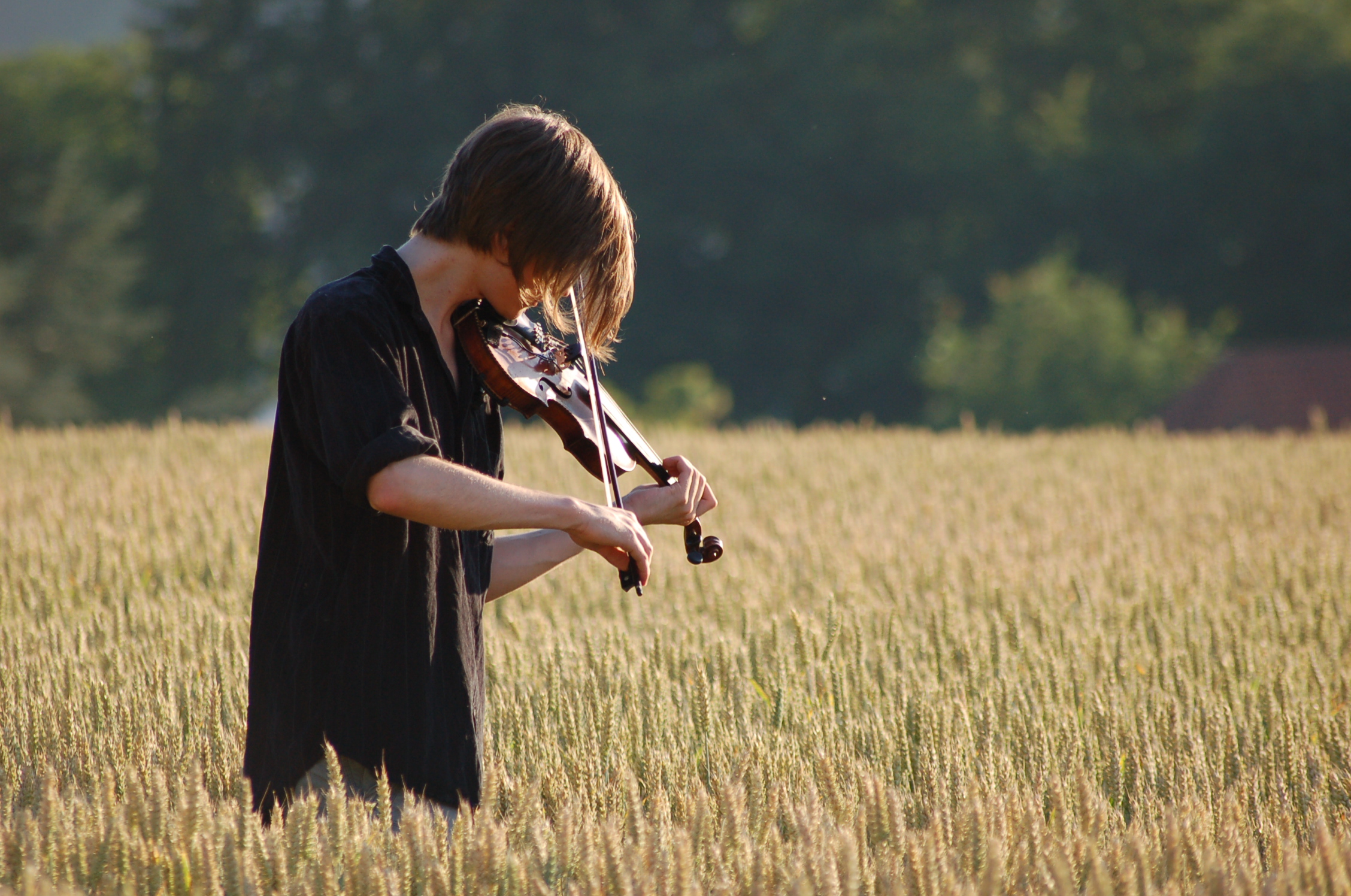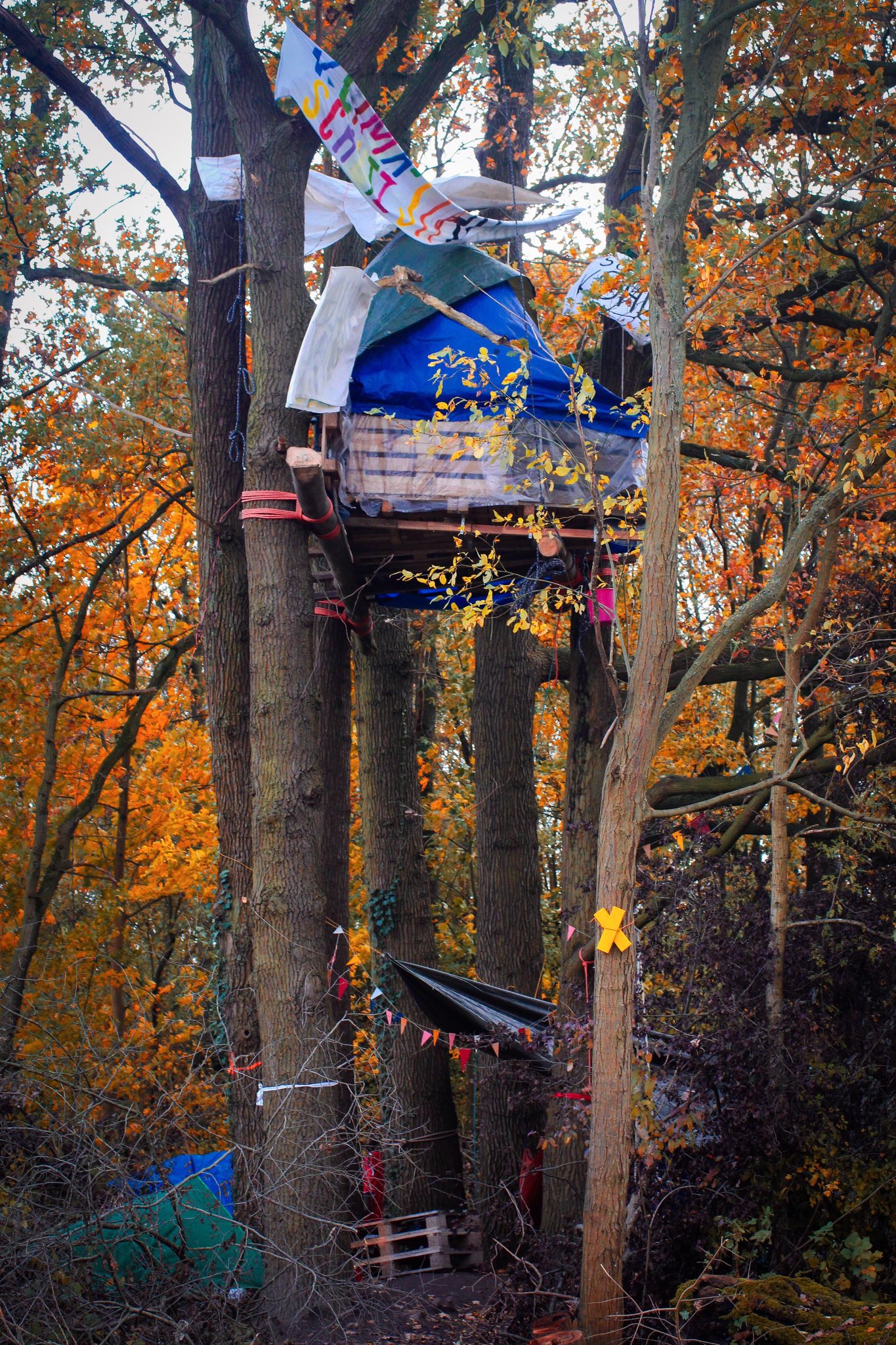“Who do you want us to call in case they take you into custody?” Torque asks. I keep starring at the blankets above me, dimly lit by some battery powered fairy lights, while thinking about an answer. The question strangely catches me off guard and my emotional state stumbles from something that almost resembles excited anticipation back down to a more anxious expectation. “My brother I guess” I finally reply, trying to imagine how this scenario would play out. I fiddle about with the sleeping bag, digging out my phone from my Jeans pockets in order to read out the contact information to Torque. They note down the number and then snuggle back up into their sleeping bag. My feet are freezing. It is the end of January and although the tree house is quite cozy and offers reasonable protection from the elements, the cold keeps creeping in on me. I remember that I still haven’t yet written down the number of the investigative committee onto my arm. Torque, Ellipsis and I are trying to gauge what the chances are of being evicted the next morning. Collectively we estimate the chances to be around 28% or so. This is the third – and how I would soon find out the last – time I am staying in the tree over night.
Ellipsis and Torque soon fall asleep and I am left with my wandering mind. Although there is a mattress and even a slated frame, I cannot sleep. The tarps that are forming the roof and walls of the tree house are not soundproof at all and my mind keeps analyzing any little noise, scanning for potential danger. Is somebody down there going through the supplies left in the tents? Is somebody messing with my bike, trying to steal it or to throw it into the canal? Once again I cuss myself for forgetting to bring ear plugs. And then there is the doubt. Is it worth the risks? Is being here the right thing to do?
I had joined the protest in October, shortly after the first hammock appeared high up in the tree. It was the reaction to the felling of some popular trees besides the canal. The responsible authorities had decided to cut down the trees to make way for an assembly surface. Here, the adjacent bridge over the canal is supposed to be disassembled and its replacement to be reassembled. Replacing the bridges is done in preparation for widening the canal to allow for large ships to pass another. The canal takes a bend near the bridge, so large barges need to slow down if they want to pass another at this particular spot. Currently, 1 to 2 of such large vessels pass the canal each day and predictions forecast this number to grow to 3 around 2030.
Proponents of the expansion like to emphasize, how this would help to move more traffic and transport volume from the streets onto the water and I get their point. One large barge can replace 100 to 175 trucks, massively cutting down on emissions. In the long run, fully developed water ways could form the foundation of a greener economy. This was probably one of the ideas behind the expansion when the plans were discussed and decided upon 30 years ago. However, the current and past ministries of transportation in Germany rather like to spend millions of euros on highways and streets instead and so the expansion was delayed again and again as transportation over water was given lower priority.
As a result, more and more goods are transported via the streets due to higher reliability and better planning certainty. Some say we can only counteract this trend by consequently modernizing water ways, as this is an interplay of supply and demand, but personally I have lost faith that politics will do so, and the failure to prioritize the expansion of the canal over building new highways and streets serves as a perfect example. Too often have politicians given in on corporate greed and held financial interest over peoples well-being. Consider compensations for power companies during the nuclear phase-out or the demolition of villages on top of coal fields, camouflaged as a necessity to safeguard energy supply of the country (which was later debunked).
A widened canal not only means more transport volume on the water, but ultimately more transport volume in total. This volume is already taken up by a lot of fossil goods, such as coal, rubble and chemical produce, much of which is being sourced by means of exploitation. I believe, most people secretly already sense that the infinite growth that is needed to keep our current capitalist economic system running is impossible in the long run. Sooner or later, we will need to deal with a stagnating, even receding economy. And as a society, we will need to learn how to deal with that and find a way to transition to a more sustainable alternative. The earlier, the better. Oftentimes, the reaction to such ideas is fueled by fear of relinquish, meanwhile it is the people of the global south that are paying the price for our greediness and over-consumption. Too easily do we primarily think of the consequences for ourselves, forgetting about others that are directly affected by our actions or non-actions.
Until October, I haven’t had much experience with civil disobedience. The protests and demonstrations I had attended up to this point all passed off “normally” and I was never accused of any wrongdoing, let alone was I arrested. And so initially I naturally gravitated towards the “legal” part of the tree occupation only. As part of the daily vigil which was held next to the tree house, I helped communicating and debating with authorities and informing pedestrians and passersby about the situation. The culture around the occupation and vigil was fascinating to me. Despite the participants of the protest having different motives and ethics, we formed a wild, organic community organizing in chaos. The language and discussion culture was very pleasant and everyone was showing deep consideration for others.
What struck me the most though was the culture of empowerment. There were frequent skill-shares, workshops in which people taught some skill to curious others. There were skill-shares about how to talk freely to a camera or press representatives, about how to ascend a rope or how to build and navigate traverses. But it wasn’t just about acquiring skills, but also about spreading this knowledge further. Once I had learned how to climb on a rope, Torque asked me why I didn’t host the skill-share next time.
Being with the occupation brought me into contact with ideas I had previously not considered. Why should I feel bad rescuing some perfectly fine food from a trash can, simply because someone else put up a fence around it? Why should I rule out doing so for myself, just because I “make enough money” not needing to do so?
Learning how to climb a tree as a form of protest feels massively self-effective. Suddenly, you are no longer simply part of a protest that comes and goes and is mostly ignored by those in power. Instead, you present an obstruction to them, a disruption which they actively need to deal with. To me, self-efficacy constitutes a great source of motivation to concern myself with political topics. In that sense, civil disobedience presents an antidote to political apathy and therefore a valuable tool of a healthy democracy. Nevertheless, it often comes with a cost, although this time I’ll be lucky to be spared by chance, so I can’t tell from personal experience.
At 4am my alarm goes off. Its my shift of the night watch from 4 to 6. Around 6 is the most likely time for an eviction, so the purpose of the night watch is to wake up and inform others as soon as possible at the sign of impending eviction. I scramble out of the sleeping bag, trying not to wake up Torque and Ellipsis and take on the impossible task of silently putting on my climbing harness. I leave the head lamp behind and instead rely on my phone for lighting. Then I tie into the rope and descend down the tree. It is freezing outside. Down at the ground, I grab a lawn chair and climb up the stairs onto the old bridge where I would be on watch for the next two hours. There is next to no traffic at this time of the night. Starting at 5am, some early cars, bikes and even some joggers pass by. Some of them seem baffled by that lonely guy sitting on a lawn chair, wearing a climbing harness. Others are probably used to such a view already.
Close to 6am some bikes stop on the bridge. The vigil is meeting early today in an effort to prevent an eviction and to act as a legal contact point. Finally I can relax a bit. The night is over and soon I’ll be able to ride my bike home to get a few hours of sleep.
Then the first police car turns around the corner…
The eviction would last 3 days and I end up missing half of it due to another appointment. The police’s strategy would be to fence in individual sections of trees, evict any occupants and then guard the woodcutters until the fenced area was cleared. Evicted protesters would be taken to the local police stationIn the end I’m not getting arrested as on the last day I arrive by the trees too late and so I don’t face any repressions.
Ultimately, I decided that to me, it was worth it all. I met so many different and amazing people who greatly inspired me and showed me what was possible. Protesting the tree felling and expansion of the canal was the right thing to do. There are proposed alternatives to widening the canal, such as a traffic light system, which we brought back into the discourse. We also put emphasis on our demand to preserve the remaining trees for as long as possible and to keep the total number of trees that need to be cut down in order to renovate the remaining bridges to a minimum. In the long run, the expansion probably cannot be prevented, but it is important to send a message and to show that we’ll keep a sharp eye on what the authorities are doing to arrive at an acceptable outcome.



One response to “An Antidote to Apathy”
I feel you
i have done it once, but with barely any risk. We occupied a big tree as a form of a spectacular protest for a fixed time in order to remind LWL to get rid of RWE shares. I remember all the different sounds of the night and the random rampage of drunks